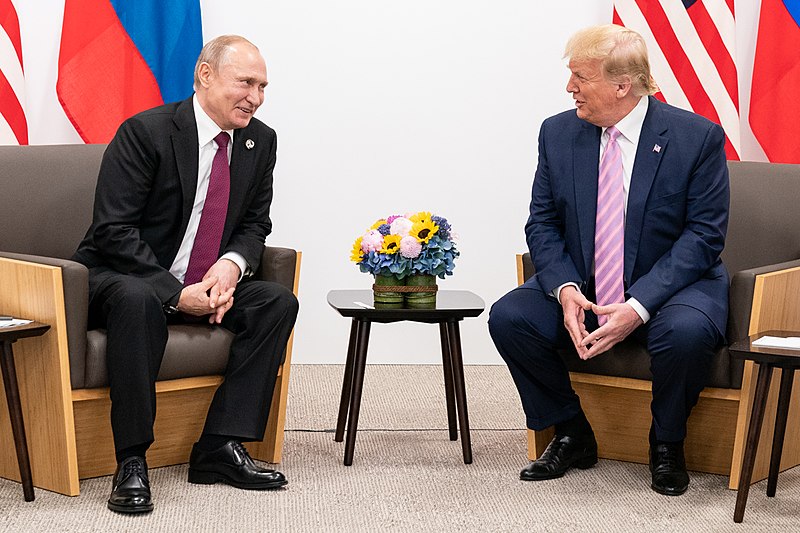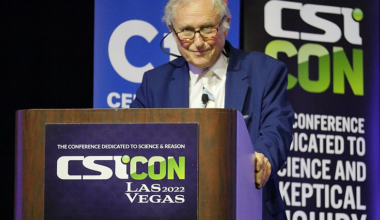
Donald Trump’s return to the White House will plunge the United States back toward America First isolationism, protectionism, and authoritarianism. But there are many open questions about just how disastrous his second term will be. We know Trump is hostile to NATO, but will he attempt to withdraw from the alliance entirely? We know he has promised to impose 20% across-the-board tariffs—a policy that would send inflation soaring and alienate many of the United States’ closest partners—but is this a genuine policy proposal or a negotiating tactic? We know Trump wants to appoint Tulsi Gabbard, an apologist for Vladimir Putin who is often celebrated on Russian state media, as Director of National Intelligence—a move that would set American intelligence gathering back decades. But will she be confirmed by the Senate?
These questions will be answered as Trump confronts a world that is much more dangerous and less stable than it was in 2016, with war in Europe, a potential regional war looming in the Middle East, and greater cooperation between authoritarian states that are intent on undermining the United States and its allies.
Unlike in Trump’s first term, there won’t be responsible public servants like Mark Milley or John Kelly in the room with him to restrain his worst impulses as he navigates these challenges. Trump’s high-level appointments have nothing to do with competence or experience, and everything to do with loyalty. That’s why he wants to put Gabbard in charge of the sprawling American intelligence apparatus, while Fox News pundit Pete Hegseth is his choice for Secretary of Defense. Matt Gaetz will be the top law enforcement official in the country because Trump wants an attorney general who won’t hesitate to use the power of the state to pursue his political enemies.1 Trump also wants to purge institutions like the State Department of nonpartisan civil servants and replace them with loyalists all the way down. Presidents already have far more power in the realm of foreign policy than in domestic affairs, and Trump wants to remove as many constraints on that power as he can.
During a foreign policy address in April 2016, Trump declared: ‘We must as a nation be more unpredictable.’ The logic behind this idea is that allies will go to greater lengths to meet his mercurial demands while enemies will fear what he might do. But predictability is powerful—if enemies know they will pay a heavy price for taking a certain action (invading Taiwan, for instance), they will be reluctant to do so. If they see the United States retreating from its commitments elsewhere in the world (Ukraine, for instance), they will be more inclined to take risks. Meanwhile, allies will make other security arrangements if they don’t believe they can trust the United States. There’s no iron law of the universe that prevents Germany or Japan from building a nuclear weapon. When the United States’ behaviour depends on the turbulent whims and resentments of an ageing autocrat, don’t expect consistency or stability.
Trump will… reward one of America’s most implacable enemies for the most naked act of aggression this century.
While some elements of a second Trump term will be chaotic and unpredictable, other aspects of his foreign policy are perfectly foreseeable. The United States’ relationships with its most important allies will suffer and its reliability as a negotiating partner will be in tatters. Tyrants around the world will know a fellow authoritarian occupies the Oval Office. The idea that the United States stands for values beyond its immediate self-interest—freedom, democracy, and so on—will be abandoned in favour of a strictly transactional relationship with the world. While it was possible to regard Trump’s first victory as a fluke, that has proven to be a comforting fiction. Despite all they know about him, Americans want Trump behind the Resolute desk—and the consequences of this decision will long outlive his presidency.
Ukraine and NATO
Trump has repeatedly promised to end the Ukraine war in ‘24 hours’, which almost certainly means he will pressure Kyiv into handing over occupied territory and agreeing to some form of permanent neutrality. In a September interview, Vice President-elect J.D. Vance proposed freezing the current lines of the conflict, establishing a demilitarized zone between the territory Russia has stolen and the rest of Ukraine, and assuring Moscow that Ukraine won’t join NATO or other ‘allied institutions.’ Trump and Vance talk about the war as if Ukraine has no say in what happens, and Kyiv has been categorical in its refusal of such an agreement. But the incoming Trump administration will be as indifferent to Ukrainian sovereignty as Putin is.
The Biden administration’s guiding principle throughout the war has been ‘Nothing about Ukraine without Ukraine.’ Trump will immediately discard this principle in favour of appeasing Putin regardless of what Kyiv says—a policy that will reward one of America’s most implacable enemies for the most naked act of aggression this century. This precedent won’t soon be forgotten in Moscow or Beijing. Trump blames Zelensky for the war—a stark reminder that he is far more hostile to the United States’ allies than its enemies, and an inversion of blame that exposes a deeper rot in his worldview. He often says the ‘enemy within’ is a far greater threat than Russia and China—a reminder of how his authoritarian impulses at home warp his approach to the rest of the world.
Like Trump, Gabbard blames the United States for the war in Ukraine, and she has regurgitated Russian propaganda about U.S.-funded biolabs in the country as a pretext for the invasion (Moscow says these labs were making chemical weapons that would be used against Russia, a claim for which there is no evidence). She argues that the ‘war and suffering could have easily been avoided if Biden Admin/NATO had simply acknowledged Russia’s legitimate security concerns.’ She doesn’t mention that Putin has painstakingly laid out his imperial ambitions in Ukraine, nor does she contend with the fact that he has justified the war by describing it as an effort to ‘de-Nazify’ Ukraine. Is that a ‘legitimate security concern’ the United States should be acknowledging? Meanwhile, Vance says, ‘I don’t really care what happens to Ukraine one way or another’, but he cares enough to accuse Zelensky’s government of buying yachts with U.S. assistance—another perfect echo of Russian propaganda.
America’s closest allies are deeply and rightly concerned about a second Trump term—during a NATO summit in Washington last July, an Eastern European diplomat told the BBC that Trump ‘hangs over every conversation here’ and that his return would ‘change everything’. Visiting delegations expressed concern that Trump wouldn’t be committed to Article V, the collective defence provision in the NATO Charter. He said as much when he invited the Russians to do ‘whatever the hell they want’ to any NATO member that doesn’t spend what he deems to be an appropriate amount on defence. The great unknown is whether Trump will attempt to withdraw from NATO altogether, which he has repeatedly considered doing.
If Trump pulls out of NATO, it won’t be surprising if Putin moves troops into a small European state (like one of the Baltics) and dares the alliance to uphold Article V.
Whether or not Trump tries to take this catastrophic step, the United States’ relationships with its closest allies will be dealt a serious blow. Even if the United States remains in NATO, Trump’s advisors say he will oversee a ‘radical reorientation’ of the American security commitment to Europe. Vance claims that the United States must ‘focus on the real issue, which is China.’ This position should be viewed in the context of his broader conviction that the United States has ‘provided a blanket of security to Europe for far too long.’ The Project 2025 manifesto—a blueprint for Trump’s second term produced by the Heritage Foundation and other conservative groups—calls for a reduction of the ‘U.S. force posture in Europe’ and the transformation of NATO so that ‘allies are capable of fielding the great majority of the conventional forces required to deter Russia while relying on the United States primarily for our nuclear deterrent’.
Europe is in the process of taking much greater responsibility for its defence, but the sudden withdrawal of American forces will be an open invitation to Putin—and a betrayal of the United States’ most important allies. If Trump pulls out of NATO, it won’t be surprising if Putin moves troops into a small European state (like one of the Baltics) and dares the alliance to uphold Article V. A failure to do so would mean the death of NATO’s deterrent power, and the chances that the alliance would challenge Putin directly without the United States as a backstop are slim.
Despite Trump’s claim that he will keep the United States’ enemies guessing, he has been transparent about his intentions in Europe. He will capitulate to Putin in Ukraine and punish the United States’ NATO allies at a time when they’re finally making substantial investments in their own defence. He will ask European governments to shoulder a much greater share of the defence burden at a time when they’re nowhere near ready to do so—and as a reward, he will launch a trade war against them. Trump shouldn’t fool himself into thinking Europe will be his punching bag. The European Commission is intent on avoiding the failures of the past, and it is prepared to retaliate if Trump imposes tariffs. ‘We will hit back fast and we will hit back hard’, a senior European diplomat recently said.
It is clear that Trump will drive a wedge between the United States and its European allies—the question is how deep that wedge will be. At a time when the United States needs its European allies more than ever to check Russia and China, Trump will erode the political, economic, and military strength of the transatlantic relationship.
Israel and the Middle East
Trump presents himself as a great dealmaker in the Middle East, but he’s about to confront some hard realities that didn’t exist during his first term. He’ll take office when the region is more combustible than it has been in many years, and he’ll have extremely high-stakes decisions to make on day one—starting with Israel’s war in Gaza, as well as how to approach the escalation with Hezbollah and Iran that threatens to blow up into a regional war.
The American voters who withheld support from Harris in protest of the war in Gaza will soon discover the scale of their mistake.
Despite the illusions of many progressives and libertarians who regarded Trump as some kind of peace candidate versus ‘genocide Joe’ Biden, it is likely that he won’t pressure the Israeli government as forcefully as the Biden administration has on issues like human rights in Gaza—which is to say he won’t pressure Jerusalem much at all. For example, he criticised Kamala Harris for ‘always demanding ceasefire’ and while he says he wants the war to end as quickly as possible, this could mean giving Israel the full backing of the United States to prosecute the war more ruthlessly than ever.
The American voters who withheld support from Harris in protest of the war in Gaza will soon discover the scale of their mistake. Trump likes to present himself as the most pro-Israel president in history—he regularly touts his decisions to move the U.S. embassy to Jerusalem and his recognition of Israeli sovereignty in the Golan Heights as evidence for this claim. When he won, the Israeli hard right celebrated—Prime Minister Benjamin Netanyahu congratulated him on ‘history’s greatest comeback’ while Minister of National Security Itamar Ben-Gvir posted ‘Yesssss’ on social media.
While Israel has every right to defend itself and all American presidents brandish their pro-Israel credentials, it’s never a good sign when radical demagogues like Ben-Gvir are celebrating. The Israeli hard right has a dismal record of keeping the country safe—7 October happened on Netanyahu’s watch, and his cynical policy of propping up Hamas to relieve political pressure for a two-state solution made the organization richer and more powerful than it otherwise would have been. The Netanyahu government still hasn’t articulated a plausible post-war plan for Gaza, and Trump won’t pressure it to do so.
In Trump’s first term, he attempted to bypass the Israel-Palestine conflict altogether via the Abraham Accords—a normalization agreement between Israel and several Arab states. Even after 7 October, Saudi Arabia remains interested in joining, and expanding the Abraham Accords will likely be one of Trump’s primary goals in the region. While there are encouraging signs that the detente between Israel and much of the Arab world is resilient—it was particularly impressive to see Jordan, the UAE, and even Saudi Arabia help Israel repel a direct Iranian attack earlier this year—relations will be strained if Israel intensifies the war in Gaza.
There’s no telling what Trump will do to lure Arab states into a wider deal with Israel. He has always shown contempt for human rights in the region—recall his refusal to hold Saudi Crown Prince Mohammed bin Salman accountable for the murder of Jamal Khashoggi, an American resident and Washington Post columnist. One of Crown Prince Mohammed’s biggest defenders in the administration was Trump’s son-in-law Jared Kushner, who received a $2 billion investment from a fund run by Mohammed six months after he left office. Expect the corruption to become even more brazen over the next four years, as Trump isn’t even trying to hide it anymore—just look at his transparently transactional relationship with Elon Musk, the wealthiest man on the planet. Musk now has a government position that doesn’t require him to divest from his companies, and he’s a powerful personal advisor to Trump—he was also on recent calls with Zelensky and Iran’s UN ambassador.
Trump often makes strategic decisions on the basis of his tempestuous moods and grievances.
Although it’s likely that Trump will continue to aggressively confront Iran, he has also shown interest in negotiating a new nuclear deal—particularly with Tehran closer than ever to building a bomb. Depending on the scope and parameters of such a deal, it could be another source of tension as Trump attempts to improve relations with Arab states.
Trump has demonstrated a willingness to take risks with Iran, such as the assassination of Qasem Soleimani in early 2020. His appetite for risk may be even greater after evidence emerged of an Iranian assassination plot against him. If he once again exerts ‘maximum pressure’ on Tehran and this fails to secure a deal, military action is a possibility. Trump recently lambasted Biden for urging Israel not to attack Iranian nuclear sites: ‘[T]hat’s the craziest thing I’ve ever heard’, he said. ‘The biggest risk we have is nuclear.’ He has previously said war with Iran would be ‘obliteration like you’ve never seen before’, and though he presents himself as some kind of dove, he loves to be unpredictable.
Asia
Despite all the talk about pivoting to Asia, Trump has the same transactional attitude toward the United States’ East Asian allies that he has toward Europe.
Trump purports to be the ultimate China hawk—tough enough to resist Beijing effectively but savvy enough to secure a long-term trade deal that would reduce the risk of conflict and benefit the United States economically. Trump was so attached to the idea that he could cajole China into a trade deal that he refused to enact sanctions against Chinese Communist Party officials for the mass detention and torture of Uyghurs in Xinjiang. Trump’s former National Security Advisor John Bolton even claims that Trump told Xi Jinping to ‘go ahead with building the camps’ in Xinjiang. Trump ultimately signed a deal, but despite a few victories on issues like intellectual property, the $200 billion in additional exports China agreed to purchase by the end of 2021 failed to materialize (due to COVID-19 and other factors).
The pandemic soured Trump’s brief conciliatory attitude toward Beijing. He was soon raging about the ‘China virus’ and his administration launched an all-out anti-China offensive which encompassed sanctions, indictments and arrests, export controls, the designation of Huawei as a national security threat, and a wide range of other actions. This is a reminder that Trump often makes strategic decisions on the basis of his tempestuous moods and grievances.
Trump’s rhetoric suggests that he’ll intensify the economic onslaught against China—he has promised to impose tariffs of over 60% on Chinese exports. But it’s less clear how he will check Beijing’s geopolitical ambitions—particularly with regard to Taiwan. In a recent interview with Bloomberg Businessweek, Trump complained that ‘Taiwan doesn’t give us anything’ and said the country ‘should pay us for defense.’ If there was any doubt about how Trump views the United States’ alliances, he cleared it up: ‘We’re no different than an insurance company.’
While other presidents have emphasized the importance of defending Taiwanese democracy and resisting the region’s great totalitarian hegemon, the United States’ relationship with Taiwan is just a business deal to Trump. He says Taiwan should spend 10% of its GDP on defence—a ridiculous figure that would constitute over 80% of the country’s national budget. Trump will pressure Taipei to make greater investments in its own defence and pay the United States for protection—an approach that will prove to Beijing that the American commitment to Taiwan is fickle and contingent. He has a long record of coercing the United States’ East Asian allies in this way. In his first term, he pressured Japan to quadruple annual payments for U.S. forces stationed in the country to $8 billion and threatened to withdraw U.S. troops from South Korea after demanding a fivefold increase in payments from Seoul.
The United States’ long-standing strategy on Taiwan is what American officials describe as ‘strategic ambiguity’, but Biden has eliminated some of this ambiguity by pledging that the U.S. would come to the island’s defence if China invades. But it isn’t clear if Trump even believes defending Taiwan is possible. ‘Taiwan is 9,500 miles away’, he noted during his interview with Bloomberg. ‘It’s 68 miles away from China.’ U.S. officials report that Xi has told his military to be ready to invade Taiwan by 2027, right in the middle of Trump’s second term. Given Trump’s long history of hostility to American alliances and his eagerness to abandon Ukraine, Xi may decide that an invasion is worth the risk on Trump’s watch. Not only does Trump view the defence of U.S. allies as a business deal—those allies might soon realize that, like so many of his business partners, they’re getting scammed.
***
Trump will alienate America’s allies at a time when it has never been more important for the democratic world to form a united front against Russia, China, and an increasingly consolidated global nexus of authoritarian states. Meanwhile, he will embolden America’s adversaries by surrendering to Putin as soon as possible and dismantling the U.S.-led security architecture in Europe—and threatening to do the same in Asia. While much of Trump’s foreign policy will be unpredictable, an even bigger problem is that the United States’ friends and enemies will understand it all too well.
Related reading
US Election 2024: Yet Another Farcical and Costly Contest, by Zwan Mahmod
US Election 2024: On ‘Lesser Evilism’, by Ralph Leonard
Donald Trump is an existential threat to American democracy, by Jonathan Church
Donald Trump, political violence, and the future of America, by Daniel James Sharp
‘Project 2025 is about accelerating the demise of a functioning democracy’: interview with US Representative Jared Huffman, by Daniel James Sharp
White Christian Nationalism is rising in America. Separation of church and state is the antidote. By Rachel Laser
Can the ‘New Theists’ save the West? by Matt Johnson
Against the ‘New Theism’, by Daniel James Sharp
What has Christianity to do with Western values? by Nick Cohen
A view from Kyiv: Ordinary life during Russia’s invasion of Ukraine, interview by Emma Park
Russian history, Russian myths: review of ‘The Story of Russia’ by Orlando Figes, by Mathew Giagnorio
Israel’s war on Gaza is a war on the Palestinian people, by Zwan Mahmod
Is the Israel-Palestine conflict fundamentally a nationalist, not a religious, war? by Ralph Leonard
Young, radical and morally confused, by Gerfried Ambrosch
Bloodshed in Gaza: Islamists, leftist ideologues, and the prospects of a two-state solution, by Kunwar Khuldune Shahid
Two types of ‘assimilation’: the US and China, by Grayson Slover
Jackboots in Manchester 暴政踐踏之下的曼徹斯特, by Simon Cheng 鄭文傑
- Editor: Written before Gaetz’s (allegedly voluntary) withdrawal. I’m sure there will only be good things coming out about the nearly-attorney general… ~ Daniel James Sharp ↩︎








Your email address will not be published. Comments are subject to our Community Guidelines. Required fields are marked *
Donate